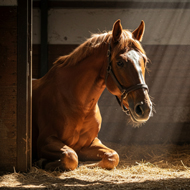Researchers generate feline embryonic stem cells
Scientists had previously developed iPS cells, but this is the first time that ESCs have been generated.
Researchers have succeeded in generating three lines of feline embryonic stem cells (ESCs).
The pioneering study is expected to have benefits for the advancement of feline regenerative medicine, helping both domesticated and wild cats.
ESCs are considered to be key to veterinary regenerative medicine, largely due to their ability to differentiate into various types of cells and be transplanted to heal internal damage. They are also in a near-natural state, similar to induced pluripotent stem (iPS) cells.
However, while feline iPS cells have previously successfully been generated, researchers had never been able to generate ESCs.
The team, from Osaka Metropolitan University, were able to generate the ESCs using lab-grown blastocysts. Scientists performed in vitro fertilisation of feline sperm and oocytes, which had been taken from discarded reproductive organs after sterilisation surgeries.
By isolating the inner cell mass from blastocyst stage embryos, and then culturing them, the researchers successfully generated high-quality feline ESCs. These ESCs can be maintained in an undifferentiated state, before being differentiated into one of three germ layers: endoderm, ectoderm and mesoderm.
This advancement of feline ESC research is expected to support the treatment of intractable diseases, such as chronic kidney disease.
These cells derived from domestic cats are often being used for research into artificial reproductive technologies (ART) for endangered wild cats. These ESCs could be used to create a supply of germ cells for ART research, tackling the germ cell shortage among wild felines.
As well as their benefits for regenerative medicine, ESCs are also beneficial for drug discoveries and in vitro organogenesis studies. Research into feline ESCs may even contribute to the development of regenerative medicine for humans.
Shingo Hatoya, who led the study, said: "Embryonic stem cells are pluripotent cells, so we believe that comparative studies with iPS cells will further promote veterinary regenerative medicine research,
"The successful establishment of feline ES cells in this study can advance veterinary regenerative medicine by enabling comparative studies with feline iPS cells. Moreover, the potential to derive sperm and oocytes from feline ES cells could contribute to the conservation of endangered wild cat species."
The full study can be found in the journal Regenerative Therapy.
Image © Shutterstock



 Zoetis UK has called on horse owners to complete a short online survey about their horse's behaviours.
Zoetis UK has called on horse owners to complete a short online survey about their horse's behaviours.